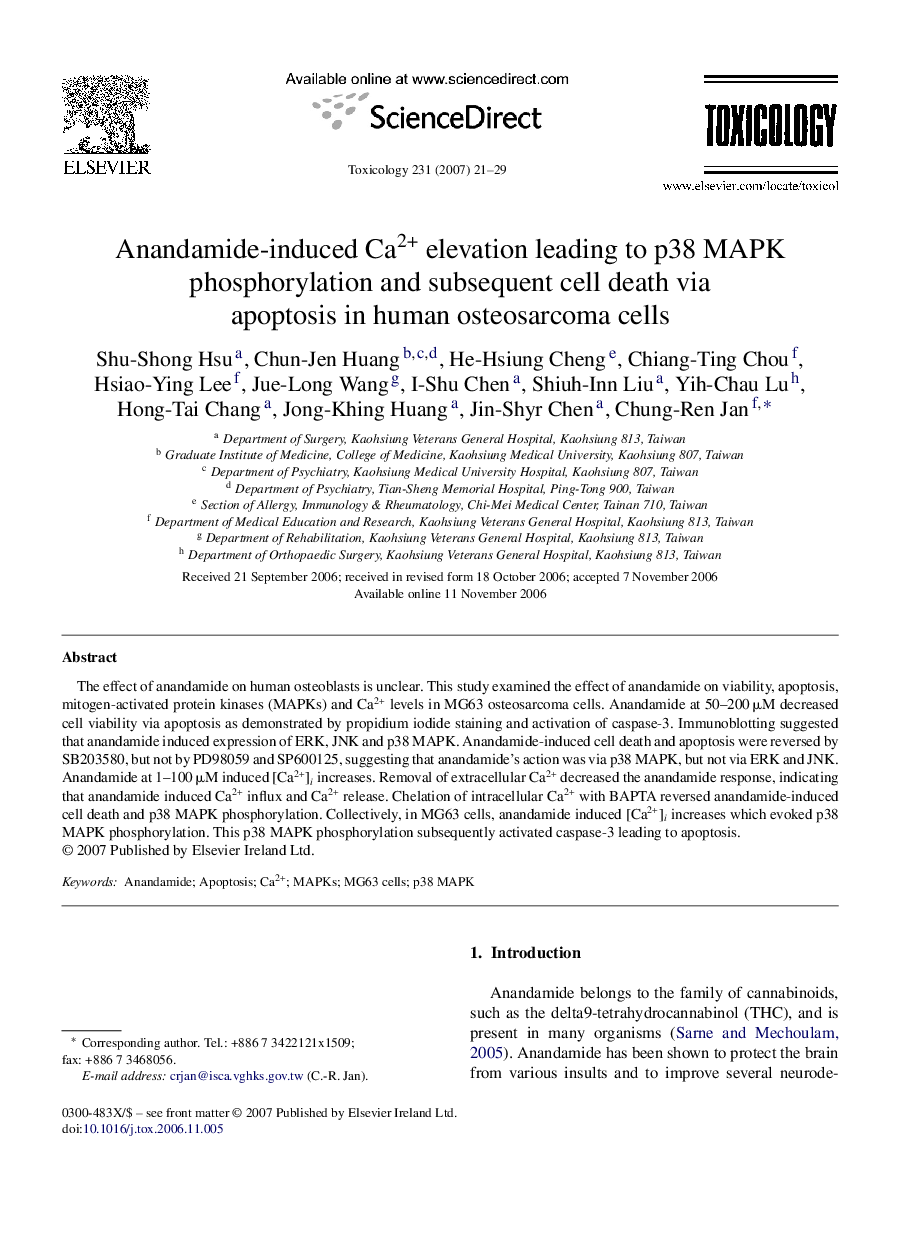| Article ID | Journal | Published Year | Pages | File Type |
|---|---|---|---|---|
| 2598025 | Toxicology | 2007 | 9 Pages |
The effect of anandamide on human osteoblasts is unclear. This study examined the effect of anandamide on viability, apoptosis, mitogen-activated protein kinases (MAPKs) and Ca2+ levels in MG63 osteosarcoma cells. Anandamide at 50–200 μM decreased cell viability via apoptosis as demonstrated by propidium iodide staining and activation of caspase-3. Immunoblotting suggested that anandamide induced expression of ERK, JNK and p38 MAPK. Anandamide-induced cell death and apoptosis were reversed by SB203580, but not by PD98059 and SP600125, suggesting that anandamide's action was via p38 MAPK, but not via ERK and JNK. Anandamide at 1–100 μM induced [Ca2+]i increases. Removal of extracellular Ca2+ decreased the anandamide response, indicating that anandamide induced Ca2+ influx and Ca2+ release. Chelation of intracellular Ca2+ with BAPTA reversed anandamide-induced cell death and p38 MAPK phosphorylation. Collectively, in MG63 cells, anandamide induced [Ca2+]i increases which evoked p38 MAPK phosphorylation. This p38 MAPK phosphorylation subsequently activated caspase-3 leading to apoptosis.
